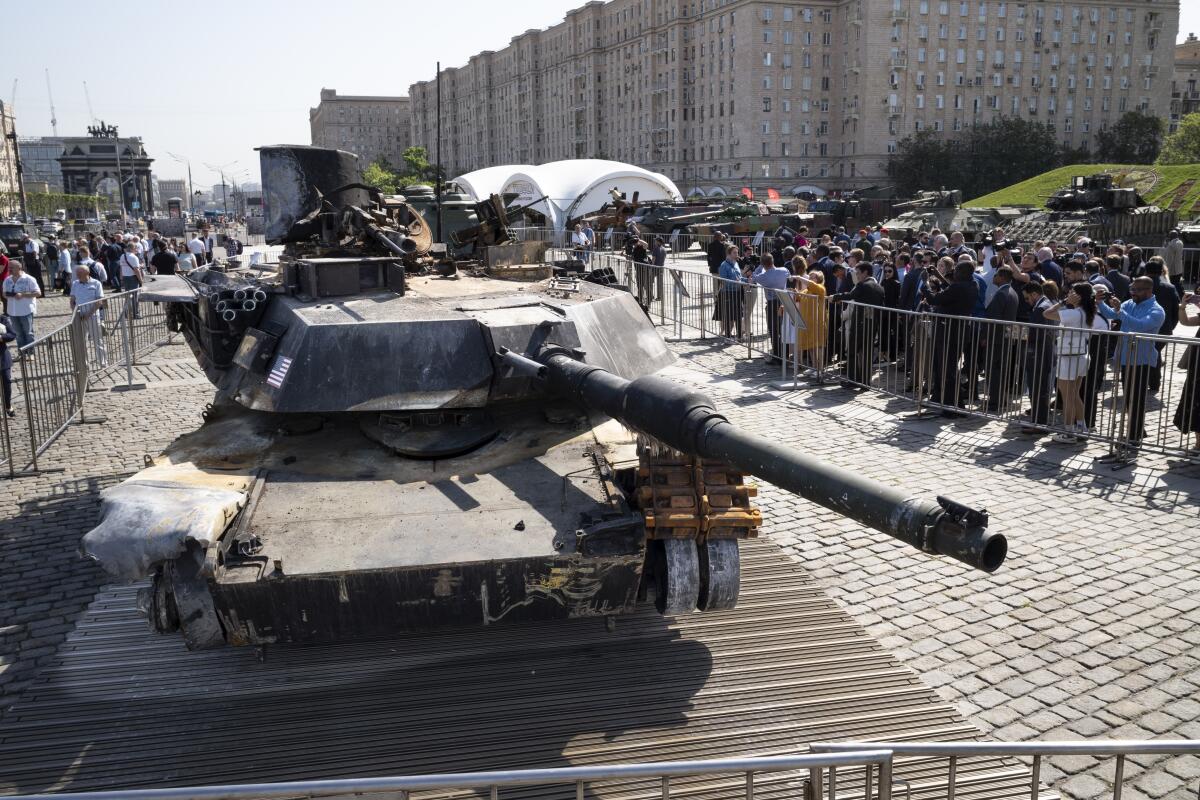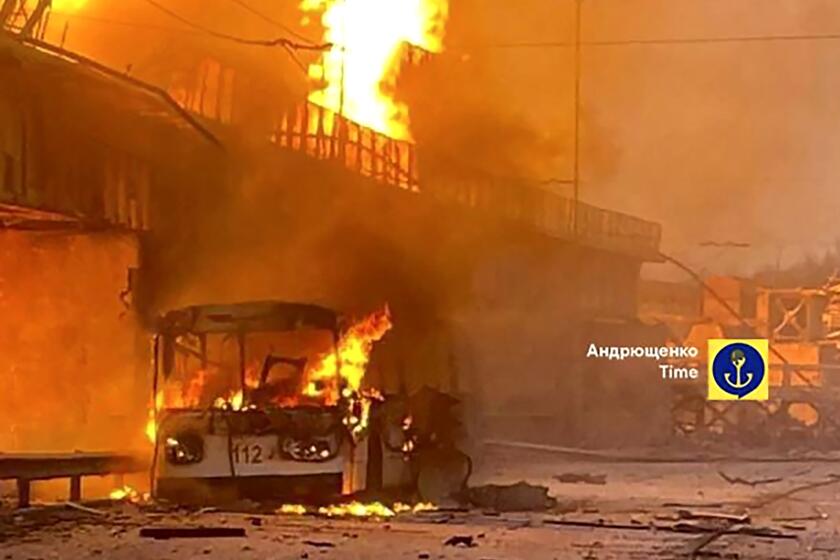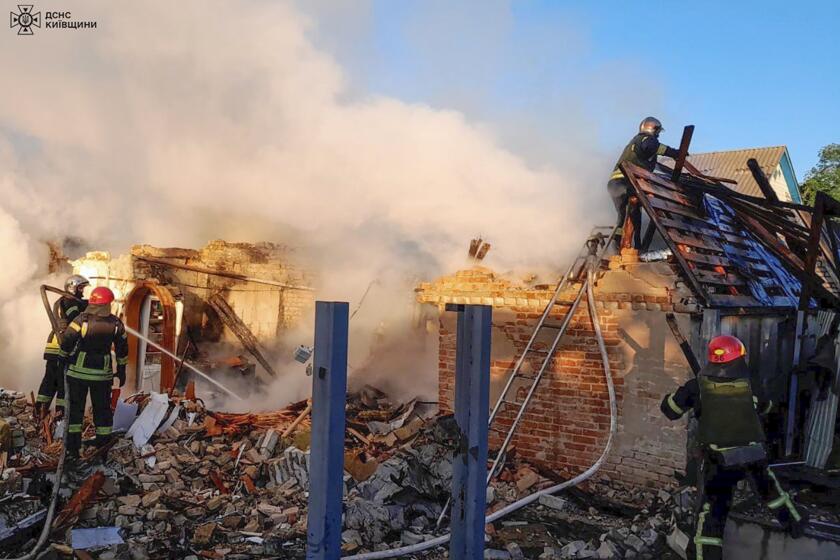Energy shutdowns hit Ukraine after Russian attacks target infrastructure

- Share via
KYIV, Ukraine — Ukraine imposed emergency power shutdowns in most of the country Sunday, a day after Russia unleashed large-scale attacks on energy infrastructure and claimed it made gains in the eastern Donetsk province.
The shutdowns were in place in all but three regions of Ukraine following Saturday’s drone and missile attack on energy targets that injured at least 19 people.
Ukraine’s state-owned power grid operator Ukrenergo said the shutdowns affected industrial and household consumers.
Sustained Russian attacks on Ukraine’s power grid in recent weeks have forced the government to institute nationwide rolling blackouts. Without adequate air defenses to counter assaults and allow for repairs, though, the shortages could still worsen as need spikes in late summer and the bitter-cold winter.
Could Ukraine lose the war? Once nearly taboo, the question hovers in Kyiv, but Ukrainians believe they must fight for their lives against Putin’s troops.
Among the most significant recent strikes were an April barrage that damaged Kyiv’s largest thermal power plant and a massive attack May 8 that targeted power generation and transmission facilities in several regions.
Following Saturday’s barrage, Ukraine’s air force said Sunday that air defenses had shot down all 25 drones launched overnight.
Russia claimed Sunday that it had taken control of the village of Umanske in the partially Russian-occupied Donetsk region.
Russia’s coordinated new offensive has centered on Ukraine’s northeastern Kharkiv region, but seems to include testing Ukrainian defenses in Donetsk farther south, while also launching incursions in the northern Sumy and Chernihiv regions.
In Russia, six people were injured in shelling in the city of Shebekino in the Belgorod region bordering Ukraine, regional Gov. Vyacheslav Gladkov said Sunday. He also said that a local official, the deputy head of the Korochansky district, had been killed by “detonation of ammunition.” He gave no details.
Russia attacks power facilities across Ukraine, including the largest hydroelectric plant, causing widespread outages and killing at least five people.
In the neighboring Kursk region, three people were injured Sunday when an explosive device was dropped from a drone, according to acting regional head Alexey Smirnov.
Speaking at Asia’s premier security conference in Singapore, Ukrainian President Volodymyr Zelensky accused China on Sunday of helping Russia to disrupt an upcoming Swiss-organized peace conference on the war in Ukraine.
Also on Sunday, White House national security communications advisor John F. Kirby confirmed President Biden agreed to allowing Ukraine to use some U.S.-provided weapons to strike inside Russia to relieve “incredible downward pressure” that Russia has put on Kharkiv.
Ukraine’s president says Russia launched a massive nighttime attack on energy facilities in Ukraine, targeting seven regions with missiles and drones.
Earlier this week, four U.S. officials, who requested anonymity, said Biden had given Ukraine the go-ahead to use American weaponry to strike inside Russia for the limited purpose of defending Kharkiv.
Ukraine asked for permission to use the U.S.-provided weapons to strike against “imminent threats just across the border,” Kirby said Sunday on ABC’s “This Week With George Stephanopoulos.”
“We’re talking about military emplacements, gun positions, that kind of thing. Logistics staging bases that the Russians were using to create some sort of buffer zone so that they could continue to pound Kharkiv.” Kirby said the permission is “limited to the Kharkiv region and it is limited with respect to the kinds of targets they can hit, and how far back they can go.”
Kullab and Morton write for the Associated Press. Morton reported from London. AP writer Tara Copp in Washington contributed to this report.
More to Read
Sign up for Essential California
The most important California stories and recommendations in your inbox every morning.
You may occasionally receive promotional content from the Los Angeles Times.













